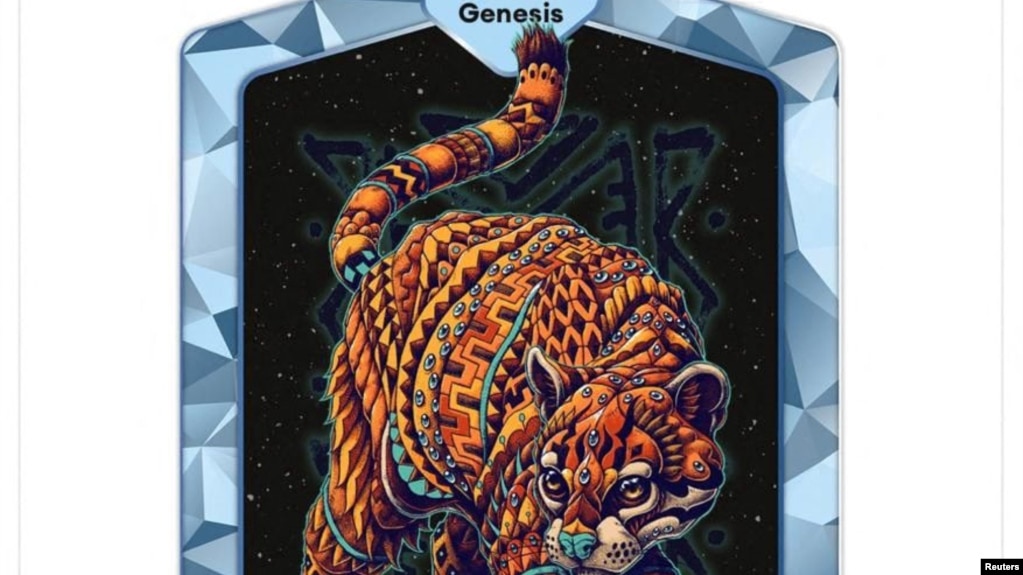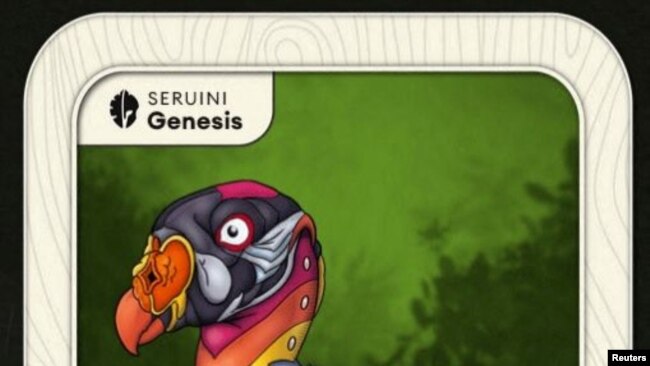
A non-fungible token (NFTs) of an illustration of a Brazilian tree ocelot by Los Angeles based graphic artist Ben Kwok.
A Brazilian company is offering a way to help save the Amazon rainforest by selling non-fungible tokens.
A non-fungible token, or NFT, is based on a technology called blockchain, which is also used with digital money known as cryptocurrencies.
An NFT can be attached to a piece of digital artwork or other things existing in digital form. The NFT can be used to provide proof that the pieces are real. While anyone can view the work, the buyer has official ownership rights over the pieces.
The Brazilian company Nemus owns 410 square kilometers of Amazon rainforest. It began selling NFTs to permit buyers to support different sized areas of forest. The money is used to help protect the trees, regrow cleared areas and support environmental development.
NFT holders will not own the land itself. But they will be able to view important information about its protection. That information includes satellite imagery, licensing and other documentation, said Nemus founder Flavio de Meira Penna.
He said Nemus had sold 10 percent of its first offering of NFTs for 8,000 hectares on the first day.
Penna told Reuters that he thinks the company’s NFTs will continue to sell quickly.
Areas of land differ in size, from less than one hectare to 81 hectares. Buyers will be able to find the area of land they are supporting with online maps.
NFTs for the smallest areas of land sell for $150 and the largest for $51,000, said Penna. He hopes to raise up to $5 million to buy an additional 2 million hectares of land in Amazonas state.
Penna said the money will also support environmental development efforts such as harvesting açaí berries and Brazil nuts from local communities.

Each NFT comes with artwork of an Amazon plant or animal. The artwork is produced by content developer and NFT publisher Concept Art House of San Francisco, California.
Some critics have questioned the value of NFTs for environmental causes. Blockchain technology requires great computing power, increasing the use of electricity that releases climate-warming greenhouse gases.
But Penna disagrees. He says saving threatened areas of the Amazon far outweighs the environmental cost of trading in NFTs.
I’m Jonathan Evans.
Anthony Boadle reported on this story for the Reuters news service. Jonathan Evans adapted this story for Learning English.
__________________________________________________________________
Words in This Story
digital – adj. characterized by electronic and especially computerized technology
licensing – n. permission to do something granted especially by qualified authority
greenhouse gas – n. any of various gaseous compounds such as carbon dioxide or methane that absorb infrared radiation, trap heat in the atmosphere.